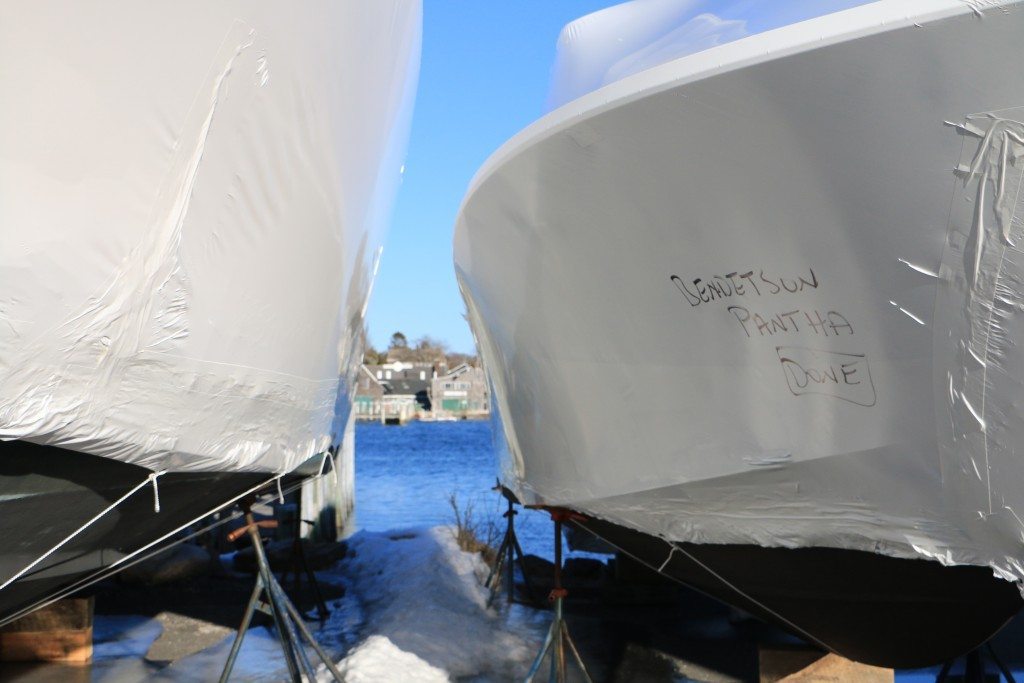5 Tips for Winterizing Your Boat

All good things come to an end. And, here in New England, that includes the boating season. But while the end of the season is always a sad affair, you can take steps now to ensure your boat is ready to go as soon as spring has sprung. Here are five tips to make that happen.
- Protect your hoses and plumbing. Any plumbing on your boat can be damaged during the winter if water in your hoses and lines freeze and expand. After you pump out your head at an approved facility and flush it with water, make sure to add antifreeze through the intake lines, discharge hose, macerator and y-valve. Also, drain your fresh water tanks and hot water heater, and pump non-toxic antifreeze into your tanks and plumbing.
- Take care of your engine. Make sure all your belts and hoses are in good condition and don’t need to be replaced. Then fill your fuel tank just short of capacity, leaving a little bit of room for the fuel to expand. Add some gasoline stabilizer, then change your oil, fill your engine block with antifreeze and remove your battery to store it in a dry place.
- Inspect your propeller. Check that your boat’s propeller is in good shape. Look for any wear or dented blades, and make any necessary repairs or replacements.
- Clean out your boat. Remove and wash any items such as cushions, pots and pans and linens. Remove your fire extinguishers, inspecting that they are still in good working order. Then give your boat a good scrubbing, wiping down the cabinets, cleaning carpets and more.
- Be sure to use a cover. You should always cover your boat in the winter, even if you’re storing it in a heated, indoor facility. Covering your boat will help keep dirt, dust, grime and little creatures from getting on or in your boat.
